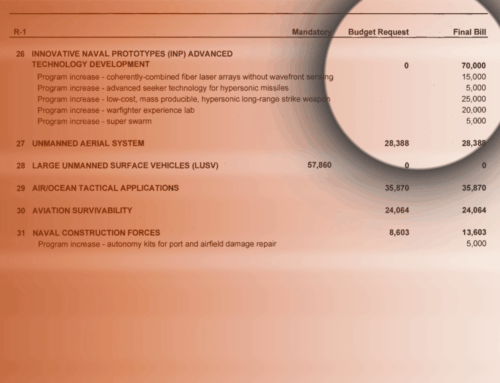Federal spending priorities are a little like fashion trends, they have a habit of changing faster than you can say “bell bottoms.” At a time when the Bush administration is regularly repeating its mantra of “strengthening spending restraint,” the cost of renewing our 6-year transportation bill just went up. To make matters worse, the $284 billion advertised cost of this bill is more likely to be the base price than the final cost.
Last year, one of the biggest items on Congress’s to-do list was the renewal of the transportation bill – a notoriously pork-laden piece of legislation that gets reauthorized once every six years. The House and Senate both managed to pass their own versions of the bill, but they weren’t able to settle their differences and agree on a final price tag before the year was out. The Senate was asking for $318 billion, the House for $286 billion. And, in a fit of fiscal sanity, the White House was threatening to veto anything more than $256 billion – the amount that the government will collect in federal gas tax revenues over the next six years.
But now that we’ve started 2005, it’s out with the old numbers and in with the new. In his fiscal year 2006 budget released earlier this week, the President increased his threshold to $284 billion. Unfortunately, the President gave no indication as to how he plans to raise the cash to pay for what our gas tax revenues won’t cover. To nobody’s surprise, Rep. Don Young (R-AK), Chair of the House Transportation and Infrastructure Committee, matched the President’s price in a new transportation bill that was released yesterday. Rep. Young’s new bill doesn’t look too different from what he gave us last year. But, there are a few differences worth noting.
For one, those pesky earmarks are playing hide and seek. Last year’s House transportation bill directed $11.1 billion over six years to “high priority projects” – a euphemism for home state pork. TCS did a little research on those projects and counted 3,200 pet projects that accounted for $10.6 billion of the bill’s final cost. The new bill also sets aside $11.1 billion for high priority projects, but that money will be stretched out over only five years, and the bill neglects to mention whose pet projects will get funded this time around. Some folks believe there could be as many as 6,000 earmarks this year. We don’t doubt that Rep. Young’s home state will once again grab the lion’s share, especially considering that he pulled down nearly $600 million for Alaska last year.
Another question that Young’s new bill leaves unanswered is that of the “minimum guarantee” or the minimum return that each state will receive on the federal gas taxes they contribute to the Highway Trust Fund. Right now, for every dollar each state contributes in gas tax, it is guaranteed to receive at least 90.5 cents back in transportation funds from the Highway Trust Fund. Increasing the minimum guarantee will help close the gap between “donor states” which contribute more in gas tax than they receive back and “donee” states which receive more highway trust funds than they contribute. Last year, the House wanted to up the minimum guarantee to 92 cents and the Senate to 95 cents. The problem is, the higher the minimum guarantee, the more the transportation bill is going to cost us. So, rather than introduce a bill with too big a price tag or ruffle the feathers of all the new members of the Transportation and Infrastructure Committee who represent donor states, Rep. Young has simply left that little detail out of his new bill.
Congress has only been back in session for a couple days, and legislators are already gassing up the pork-mobile. As the first major bill out of the gate, the Transportation bill should tell taxpayers a lot about how serious the Congress and White House are about spending restraint. If early indicators hold true, taxpayers should expect another costly year of deficit increases.
For more information, contact Erich Zimmermann at (202)-546-8500 ext. 132 or email










